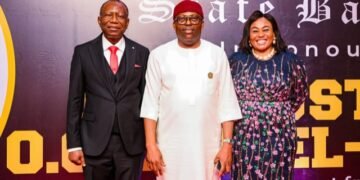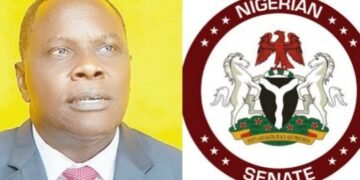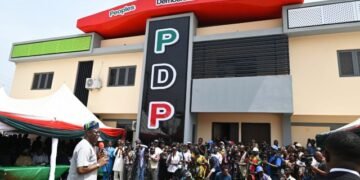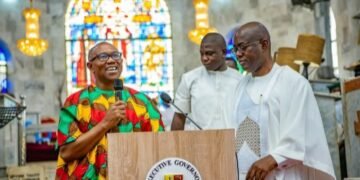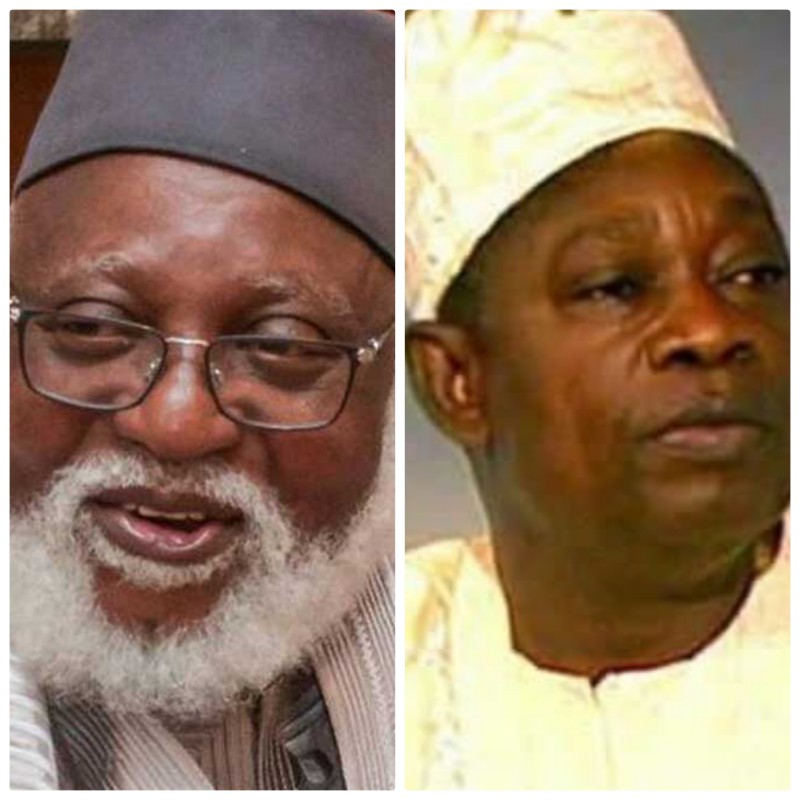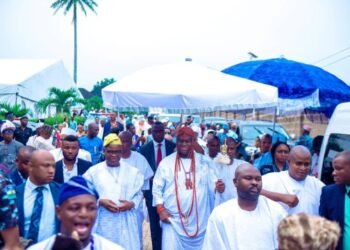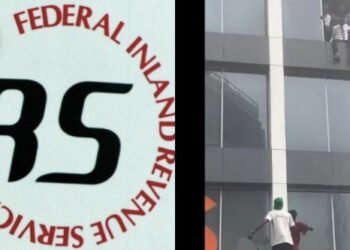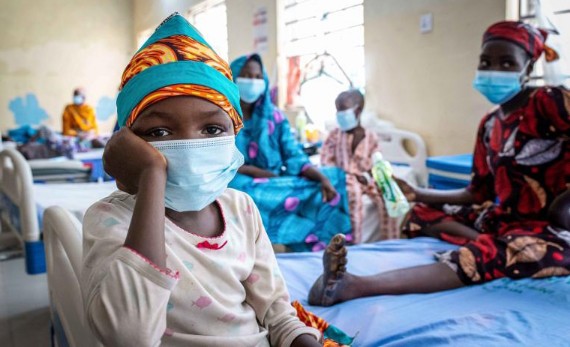Democracy in a decent Nigerian State remains the craving of the people, in spite of manipulations by some privileged few.
By May, next year, it will be 24 years of uninterrupted practice of democracy in the Nigerian political space. The ongoing democratic rule came into being on 29 May, 1999, after about 16 years of unbroken military rule.
The day initially set aside for marking Nigeria’s National Democracy Day was 29 May. But, in recognising and honouring the Hero of Democracy, the late Chief Moshood Kashimawo Olawale (MKO) Abiola, the present administration, in 2018, changed the date to June 12, to commemorate the day when a truly national election was held.
The Fourth Republic was midwifed by the Niger State-born former military Head of State, General Abdulsalami Abubakar, when he took over the reins of government on 7 July, 1998, following the sudden death of the late maximum ruler, General Sani Abacha. General Abubakar, after 11 months in the saddle, successfully handed over power to an elected civilian administration on 29 May, 1999.
However, it was never a smooth-sailing process as apathy was the order of the day among a tired and weary Nigerian populace. Who can be blamed for such high level of scepticism displayed by the people?
Build Up To Democratic Rule
Nigerians experienced another major change in their national life when, on 31 December, 1983, the military announced its return to the political scene and truncated the Second Republic, led by the late former civilian President Aliyu Usman Shehu Shagari.
Citing inept leadership and corruption among some of its reasons for the military take over, the military regime, under the leadership of Major General Muhammadu Buhari, started a course of programmes and activities that made men and officers in khaki the permanent face of the Nigerian national life for more than 15 years.
However, Buhari and his men were sacked some 20 months into the life of the regime, on 27 August, 1985. The new military leadership, headed by the self-styled military President Ibrahim Badamasi Babangida, also pointed at misrule, high-handedness, ineptitude and corruption as some of the reasons for the military coup.
The Minna, Niger State-born gap-toothed smiling General Babangida reassured Nigerians, who were initially positively receptive of his intervention, that he would not stay in office a day longer than necessary. The promise however turned out to be a farce. Behold, Babangida, who described himself as the Evil Genius, spent eight years in office, experimenting and toying with the fate of the country and its people.
June 12: A Hope Dashed
General Babangida, in 1991, came up with a semblance of two ideological political parties, the National Republican Convention (NRC) and the Social Democratic Party (SDP). The idea, he said, was to give Nigerians the opportunity of being able to choose between a party that is a little bit to the right and another party that is a little bit to the left.
Thus, political activities were, once again, revved up across the country, with the terminal date of military rule expected to be in 1993, after a 10-year dominance of the public space.
After having successfully conducted elections at the local and state levels, the highly-expected people who were tired of military rule were hopefully looking forward to the conduct of a presidential election that would, once again, usher in democratic government.
The presidential candidates of the two political parties, Alhaji Ibrahim Tofa of the NRC and the late business mogul, Chief MKO Abiola of the SDP, embarked upon the most elaborate and sophisticated campaign exercise ever witnessed in the annals of modern Nigerian political history. The two major actors engaged in robust debates, touching on the economy and other issues affecting the generality of the people.
Believing that General Babangida will honour his word and allow the process to get to its final destination, Nigerians of voting age, cutting across all socio-economic strata and of different religious creeds and beliefs, put their fate in their hands.
Defying the scotching sun of that fateful day, 12 June, 1993, they patiently queued behind the candidates of their choice. Using the Open Ballot System, votes were casted and the results were filtering in, all pointing to Abiola as the likely winner of the presidential election.
Alas, the emergence of a president was not to be: The maradonic Evil Genius lived up to his billings. Babangida threw spanner into the process and announced to a bewildered country, nay the whole world, that the election was inconclusive.
With that pronouncement, Nigerians were again denied a return to democracy. Legal issues set in, even as social disorder became the order of the day as violent protests took over most parts of the south-western part of the country.
Babangida caved in to pressure and was forced to step down from office. He, however, did not leave until he had created another round of confusion. He introduced a contraption and announced the now late Chief Ernest Shonekan as the head of an Interim National Government (ING).
While Nigerians were still wondering, trying to understand the import of the idea of an ING, a despotic dark-googled Kano-born Army General, Sani Abacha, who had been waiting patiently in the corner to have his own day, struck and removed Shonekan from office, barely three months into the life of the ING arrangement.
Abacha introduced a lot of draconian measures to sustain his administration in power. The presumed winner of the June 12 1993 presidential election, MKO Abiola, was clamped in jail after the famous Epetedo Declaration where he proclaimed himself the president of the country.
The decision of the military government to imprison Abiola further heightened tension as violent protests engulfed the landscape. In the face of the ensuing disturbances, the international community waded in and there was an increased diplomatic shuttle. Abiola was offered conditional freedom but the man stuck to his gun, demanding for nothing else but his mandate.
There was break down of law and order. Several prominent Nigerians, both civilians and past and serving military officers, were framed up in phantom military coups and thrown into prison. Some died in the Abacha gulag, while several others fled the country to seek refuge in other countries.
Abacha And Abiola’s Deaths And Fate Of Democracy
As the people were still bemoaning their fate, and in the midst of the constitutional crisis that followed the infamous annulment of the 12 June 1993 presidential election, a singular event happened that fundamentally turned the tide and changed the course of the country. The maximum ruler, General Sani Abacha, died circumstantially, on 8 June, 1998, and Nigerians trooped out enmasse, jubilating over the exit of a dictator.
Barely one month after the death of Abacha, even as the people were yet to come to terms with the reality of his demise, a monumental tragedy struck and the presumed winner of the historic election, MKO Abiola, died mysteriously in detention, on 7 July, 1998. A martyr was born and Nigerians from far and wide mourned the painful and avoidable loss.
Constitutional Crisis Looms
The death of the two prominent key players within a month interval brought in its wake a constitutional crisis. While the whole world watched how the vacuum created by the sudden passage of Abacha would be filled, sorrowful Nigerians, awaited with baited breathe, the likely consequences of the demise of Abiola.
However, like the proverbial cat with nine lives, Nigeria, once again, overcame the threat to the national life. Within few hours of his death, a successor was named in replacement of Abacha in the person of General Abdulsalami Abubakar.
Unlike the late maximum ruler, Abdulsalami came with an ambience of a dove. He waved the olive branch and assured that the people would have a democratic government in place within the next one year.
Transition To Democracy
The new military Head of State started working in earnest, putting in place a programme that would ensure a smooth transition of power from politicians in uniform to military men in agbada. He also released those who were kept in the Abacha gulag.
Seeking to earn the trust of the people and renew their confidence in the military, General Abdulsalami toured various parts of the country, consulting with critical stakeholders to convince them about the sincerity of his commitment to transition from military rule to civil rule.
Elections were conducted in 1999 and a former military Head of State who incidentally, 20 years earlier, conducted a general election that ushered in the Second Republic, General Olusegun Obasanjo, was proclaimed the winner of the presidential election.
Thus, there was a change of guard at the nation’s seat of power, Aso Rock and Abdulsalami became the second Army General in the country’s chequered political history, after Obasanjo, to hand over to a democratically elected administration.
Manifesting a date with destiny, the man who had been condemned to death by virtue of his alleged complicity in the 1997 military coup was handed the reins of power. The Owu, Ogun State-born Obasanjo, the candidate of the Peoples Democratic Party (PDP) in the 1999 elections, was, on 29 May, 1999, sworn in as the second civilian president of Nigeria.
Democracy Under Obasanjo, etal
For the first time in the annals of its political history as a country, since its birth in 1960, we are witnessing an uninterrupted civil administration, some 23 years after politically-tainted men in military uniforms took their exit from the scene.
After a two-term reign of eight years, Chief Obasanjo, in 2007, handed over power to his fellow man from the PDP, the late Alhaji Umaru Musa Yar’Adua. Bogged down by illness, Yar’Adua spent just a little over two years in office before he eventually succumbed to the cold hands of death on 5 May, 2010.
Surviving series of political intrigues and following the application of the Principle of Doctrine of Necessity, brought to bear by the National Assembly under the chairmanship of Senator David Mark, Dr Goodluck Jonathan succeeded his late boss as the substantive president of the country, on 6 May, 2010.
Jonathan went ahead to win the 2011 elections and was sworn in on 29 May, 2011. His presidency witnessed unarguably the most vitriolic attacks from the main opposition political party, the then Action Congress of Nigeria (ACN), which later formed a coalition with some other parties to birth the All Progressives Congress (APC).
Faced with stringent barrages of attack, activated by the APC, both in the traditional media and on the social media, as well as an alleged international conspiracy, the PDP-led Jonathan administration crumbled.
The party, which was in power since 1999, lost out in the 2015 general election. A former military Head of State, General Muhammadu Buhari, was elected on the platform of the APC and was eventually sworn in, on 29 May, 2015, as successor to Jonathan.
President Buhari was returned to office for a second term, via the victory of his political party, the APC, in the 2019 elections. As he is winding down and looking towards his exit from the seat of power on 29 May, 2023, Buhari, last June, successfully organised and delivered the candidate of the party for the 2023 presidential election.
Democracy Still Under Threat
Undoubtedly, this is the first time Nigeria and Nigerians will be witnessing an uninterrupted civil rule for a period of 23 years. The first experiment during the First Republic was short-lived, courtesy of the 1966 military coup, leading to a military rule that lasted 13 years.
Civilian rule was restored after the 1979 elections and the Second Republic was birthed. But the experiment was truncated, just after four years, as the military rolled out the tanks from the barracks in the late hours of 31 December, 1983 and sacked the Shagari-led administration.
The Third Republic was still-birthed, many thanks to Generals Ibrahim Babangida and Sani Abacha who, through their activities, annulled the first pan-Nigerian electoral process and thus stalled the restoration of democracy in the country, after almost 16 years of military rule.
Since 1999 when the country started the voyage into the Fourth Republic, it has been an admixture of pains and agonies unleashed on the people by successive administrations whose policies and programmes have negatively impacted upon their lives.
Nigerians have been made to live at the mercy of wheeler-dealers in power who cared less about the welfare of the people they claimed to be leading. Harsh socio-economic realities, biting inflation, joblessness, pervading insecurity, killings and kidnappings, among other vices, have become the sad realities.
Players in the two main political parties in the land, the APC and the PDP, are still rubbing salt into the injury, demonstrating their crass insensitivity to the fate of the people. Unmindful of the plight of the people and not concerned about their welfare, the two main political parties resorted to bazaar, selling their tickets to the highest bidders for elective public office, from state level to the national level.
Within a space of one week, the two political parties, PDP first and later APC, held their national conventions where their candidates for the 2023 presidential election were elected. Issies of ideology and definite plan of action were relegated to the backwaters as hundreds of thousands of dollars allegedly changed hands, all in a bid to get the ticket to the highest political office in the land.
This fact was not lost on a veteran journalist, High Chief Tola Adeniyi, who, in a recent piece, “Window Dressing At The Eagle Square”, lamented the state of the nation and concluded that the presidential primaries of the two political parties were a hyped conclusion of a gambling exercise.
Chief Adeniyi flayed politicians, cutting across all political platforms, for holding the people to a ransom of theatrical performances, as they and some other political parties jostle “for the driver’s seat to continue the despoliation of Nigeria.”
The veteran journalist and a former Managing Director of the then Daily Times minced no word as he wrote: “It is quite worrisome that Nigerians are being made, through media hype and manipulation, to believe that elections, via gambling on a high scale, should be their priority at this point in time. Even the blind, the deaf and the dumb know that Nigeria is on the boil.
“The recklessness with which the fortunes and misfortunes of the country had/have been toyed with by the so-called politicians who came to office through bribery, election-rigging, thuggery and large-scale fraud in the last 21 years cries to high heavens.”
The concept of democracy in the ancient Greek City-States is government of the people, by the people and for the people. Sadly, what we are witnessing in our clime is stealing of the money of the people, by some people and to be spent by some few people for some people.
As campaigns for the 2023 general election kicks off in September, the fate of the people lies in the hands of three or four principal players whose eyes are on the ultimate prize namely, the presidency of the most populous and arguably the most troubled country of the African Continent. These are Senator Bola Tinubu of the APC; Alhaji Atiku Abubakar (PDP); Mr Peter Obi (Labour Party); and Senator Rabiu Kwankwaso (New Nigerian People’s Party).
Would the 2023 elections produce the desired difference and usher in credible leaders who can help to project true democratic rule? Would it produce statesmen who are imbued with the very essence of nation-building? Are we going to continue to have a leadership with its potent divisive tendencies? Are we going to have a new leadership that can entrench democracy and give all parts of the country a sense of belonging? Or are we going to continue with the discordant tune of “To Thy Tent, Oh Israel”?
As other parts of the world join Nigerians in the waiting game, it is certainly clear that it is not yet Uhuru for democracy in Nigeria. The people are yet to enjoy even a semblance of dividends of democracy. What they are having are mere crumbles from the dustbins of politicians who are feeding fat on the wealth of the country, to the detriment of the people.
•Falade, a former Deputy Editor with the Nigerian Tribune, is the CEO/Publisher of Newscoven.ng.

